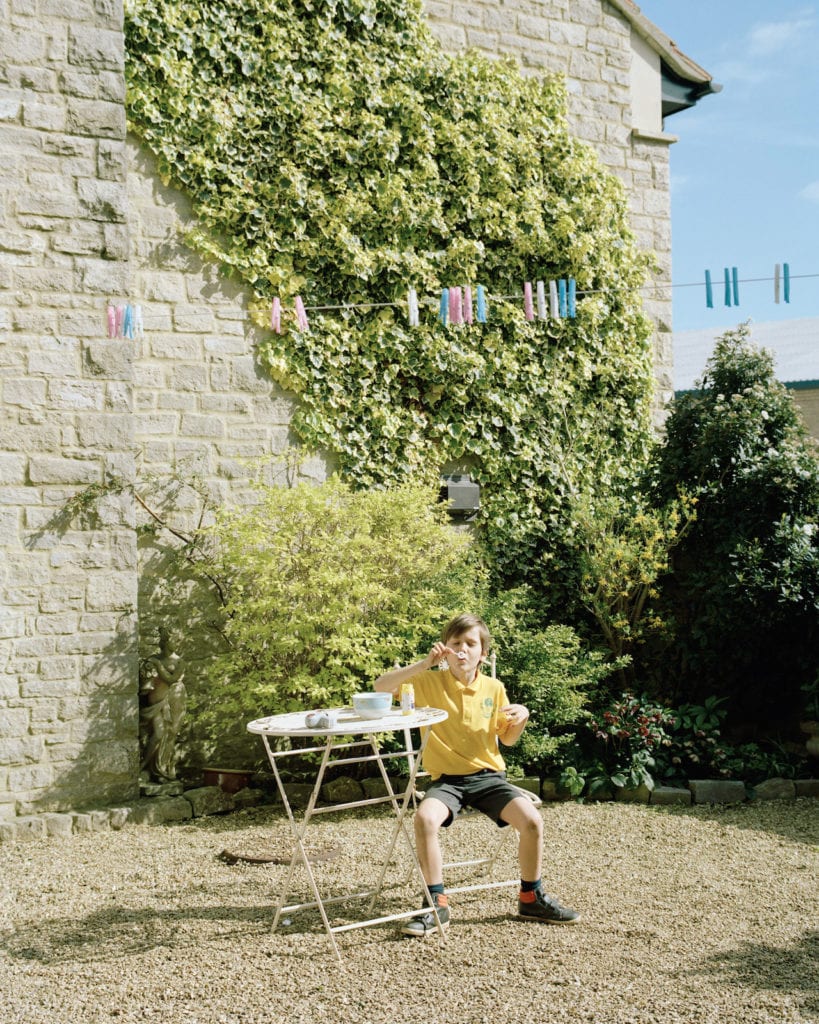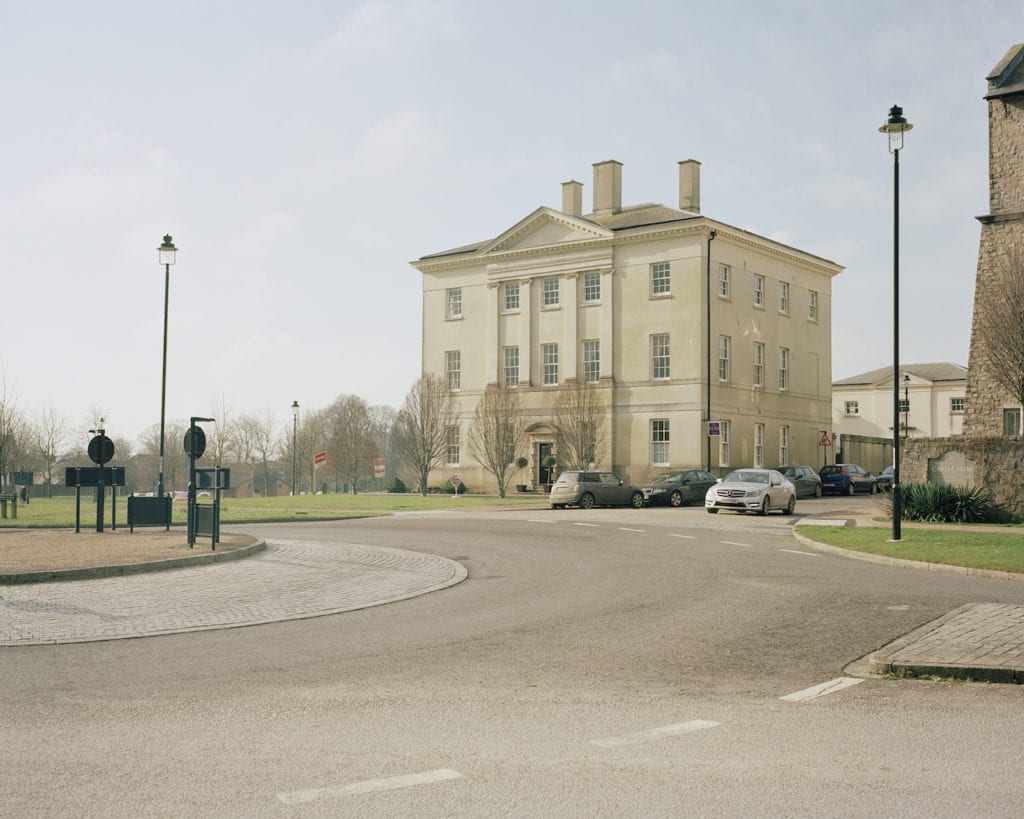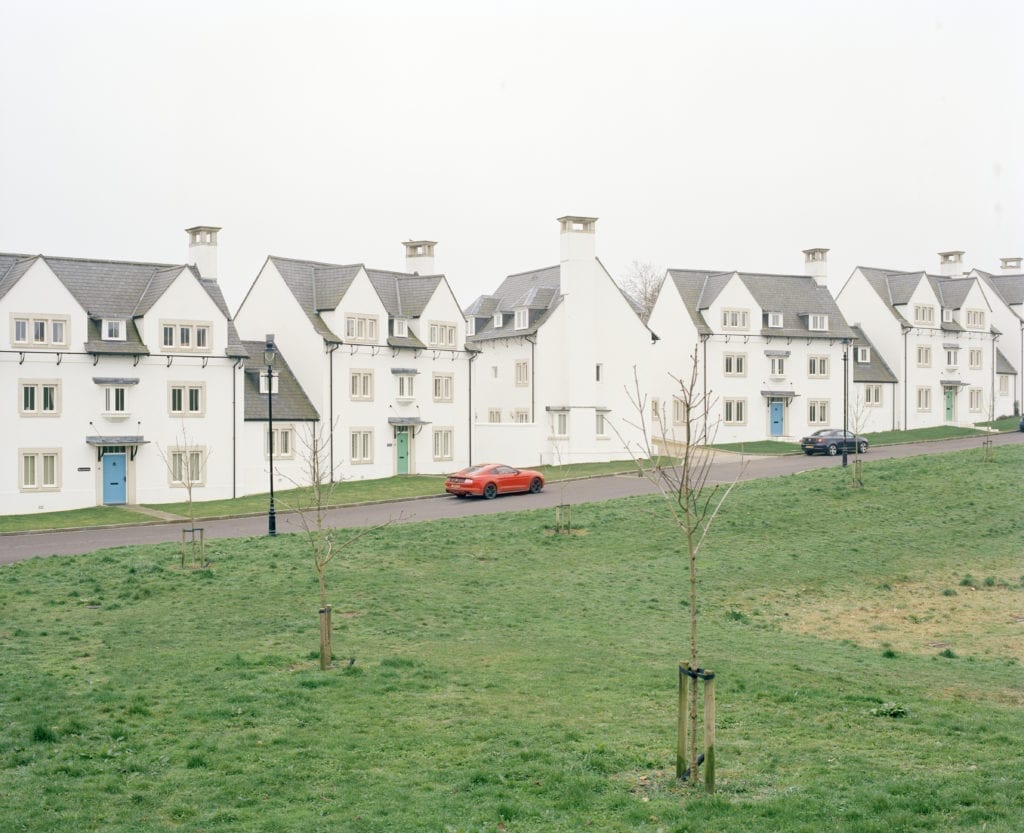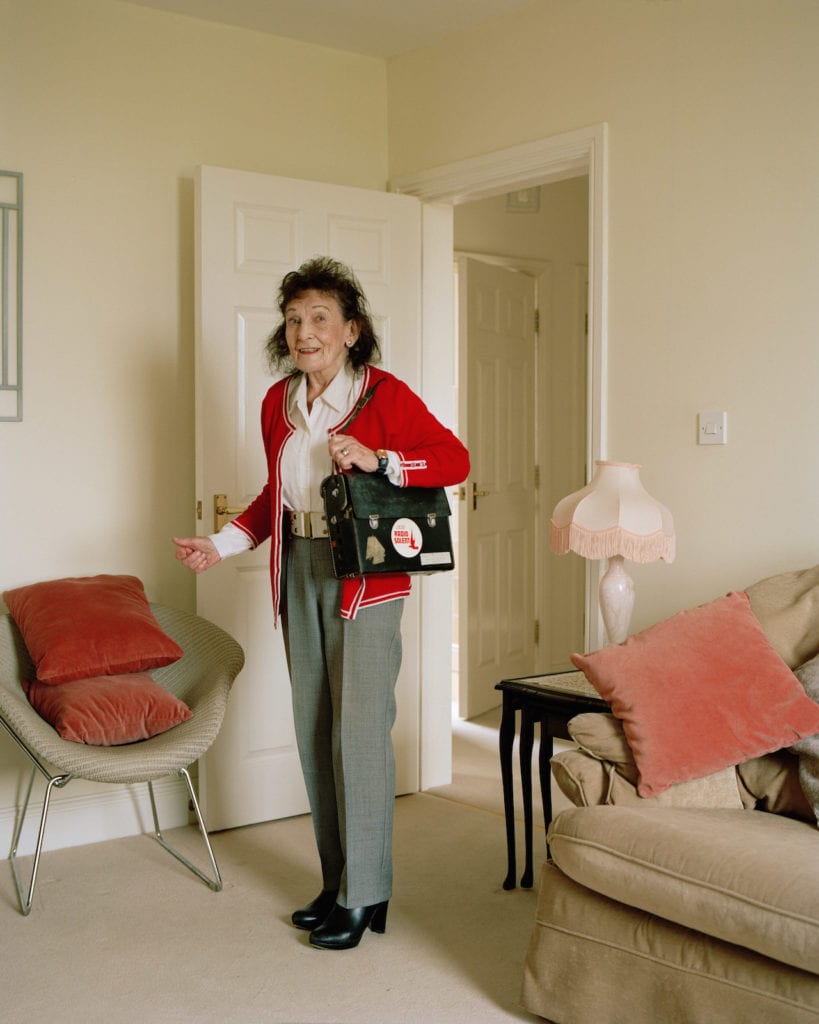“Nostalgia is a key aspect of my work,” says 22-year-old photographer Jack Orton. “It has been said that my generation – the ‘millennials’ – have an increasing interest in the past and, in some sense, nostalgia distorts and falsifies our perceptions of both the present and the future.” Focusing his lens on often-overlooked urban pockets of England, Orton’s photographs of the landscape and its inhabitants offer thoughtful studies of British life at a time of great change.
Orion, a recent graduate of Arts University Bournemouth, began his relationship with photography when he bought a T-Mobile G1, the world’s first Android phone, using it to experiment with an app that emulated old film stocks and compulsively processing his surroundings through endless phone pictures. His projects are now shot on film and are shaped by a gentler pace and slower process of observation.
Orton was born in a small village in Northamptonshire, which he describes as a “proud village where heritage plays a vital part”. Living in close proximity to Northampton, however, provided him with a different viewpoint. “It has only recently begun to embrace its own heritage; after years of bad planning and even worse luck, it didn’t embrace its past,” he says. His key interests now revolve around architecture and urban planning, and how they affect the way we live.
“This was something I was keen to capture with a camera,” he says. “Moving these ideas into my degree allowed me to focus not only on the spaces but also on the people that live in them. I quickly realised the importance of human presence within these urban environments; how we change them over time and how the environment changes us.”

From the series Whispering Blooms © Jack Orton
Orion, a recent graduate of Arts University Bournemouth, began his relationship with photography when he bought a T-Mobile G1, the world’s first Android phone, using it to experiment with an app that emulated old film stocks and compulsively processing his surroundings through endless phone pictures. His projects are now shot on film and are shaped by a gentler pace and slower process of observation.
Orton was born in a small village in Northamptonshire, which he describes as a “proud village where heritage plays a vital part”. Living in close proximity to Northampton, however, provided him with a different viewpoint. “It has only recently begun to embrace its own heritage; after years of bad planning and even worse luck, it didn’t embrace its past,” he says. His key interests now revolve around architecture and urban planning, and how they affect the way we live.
“This was something I was keen to capture with a camera,” he says. “Moving these ideas into my degree allowed me to focus not only on the spaces but also on the people that live in them. I quickly realised the importance of human presence within these urban environments; how we change them over time and how the environment changes us.”

Looking beyond England’s main cities, the photographer has always been drawn to the overspill. His projects focus on relatively new, rigorously conceived urban developments, driven by an interest in the tension between their idealism and their strange feeling of disconnect.
For Whispering Blooms he ventured to Poundbury, a small, experimental village in Dorset planned by the Prince of Wales in an eclectic patchwork of traditional architectural styles. Described as a “Brexit bubble” by its residents, Orton focused on the older generation living there and their attachment to flowers.
In Fragmentary he spent time in the much-derided utopian ‘new city’ of Milton Keynes, a modernist project with big dreams of becoming a thriving regional centre. It’s one of the most connected towns in the UK, planned on a grid system and dotted with roundabouts, but Orton’s images reflect on its struggle to find its soul.
jackorton.co.uk This article was first published in the September issue of BJP, available via www.thebjpshop.com

From the series Whispering Blooms © Jack Orton 
From the series Whispering Blooms © Jack Orton 
From the series Whispering Blooms © Jack Orton
For Whispering Blooms he ventured to Poundbury, a small, experimental village in Dorset planned by the Prince of Wales in an eclectic patchwork of traditional architectural styles. Described as a “Brexit bubble” by its residents, Orton focused on the older generation living there and their attachment to flowers.
In Fragmentary he spent time in the much-derided utopian ‘new city’ of Milton Keynes, a modernist project with big dreams of becoming a thriving regional centre. It’s one of the most connected towns in the UK, planned on a grid system and dotted with roundabouts, but Orton’s images reflect on its struggle to find its soul.
jackorton.co.uk This article was first published in the September issue of BJP, available via www.thebjpshop.com




